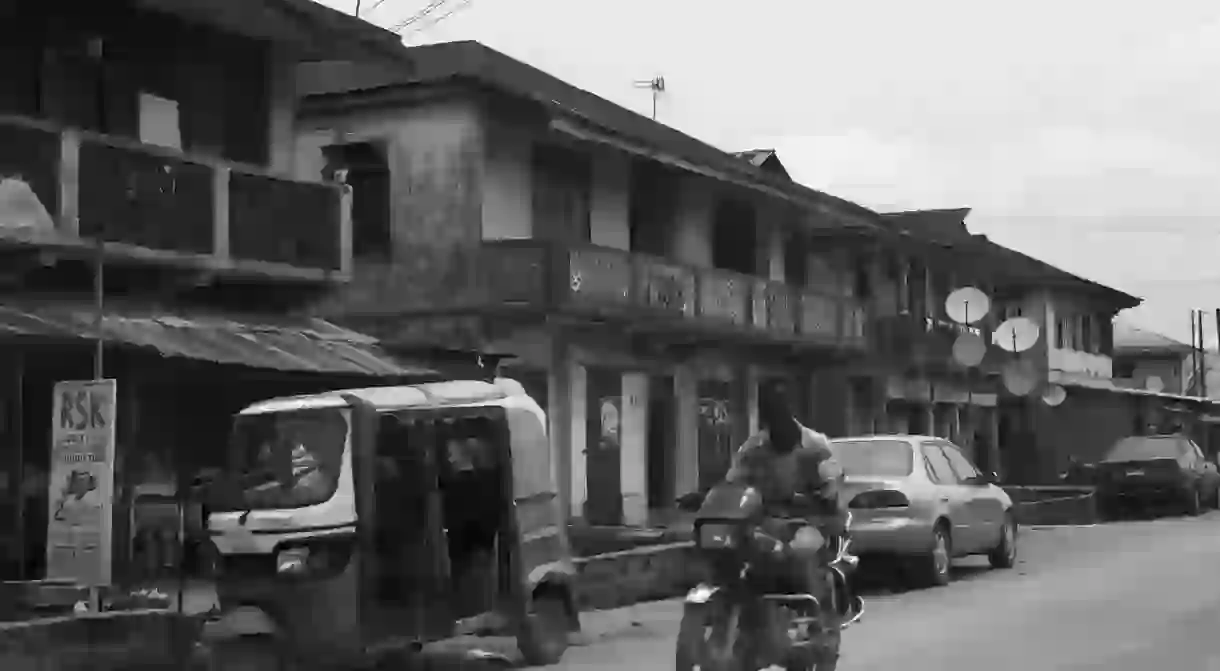Untranslatable Nigerian Slang Words We Need in English

With over 520 languages including dialects, Nigeria is a country of many tongues. While English is regarded as the first language due to the influence of British colonial rule, there are several other derivatives of it including pidgin, also known as broken English or Nigerian slang. Here’s your need-to-know guide.

Amebo
This slang word is used to refer to a person who likes to gossip or likes to spread gossip. For example, ‘you too like amebo’ means ‘you love gossip’, whereas ‘she’s an amebo’ means ‘she’s a gossip’.
Ajebutter
In Nigeria this term is used to refer to people who are well off or brought up with a silver spoon. It can also be simply termed ‘butter’ for short.

Control(Ctrl) P
A recent slang in the Nigerian slang lexicon, ‘control P’ is a term used when someone is taking a situation too personally. For example, ‘na control P dey worry am’ means that the person being referred to is taking things too personally.
Fall my hand
This is another popular Nigerian slang that is used when someone is disappointed by a person or something that happened. For example, ‘no fall my hand’ means ‘don’t disappoint me’, while ‘na so dem fall my hand for there’ means ‘that’s how I was disappointed over there’.
Gbosa
This slang is an action word which means to punch or slap, but can be as well used to refer to the sound made when someone or something is being punched. For example, ‘I go give you gbosa for head!’ means ‘I will punch/slap your head!’ The word can also be used when describing the sound of a punch, as in ‘Pow!’.

Jack
This Nigerian slang is commonly used by students and shouldn’t be confused with the English name of the same spelling. To ‘jack’ means to study or revise effectively. ‘I dey go jack for my exam’ means ‘I’m going to study for my exam’.
Soji
This beautiful Nigerian word is an abbreviation of the Yoruba name Adesoji, which means ‘the crown is revived’. However, when used in everyday vernacular, it means to be knowledgeable about something or street smart. For example, ‘she too soji’ means ‘she’s very smart’.

Jara
Jara is derived from the Yoruba language and it means to add extra or give a freebie after something has already been bought or paid for. For example, when serving a dish at a restaurant, customers can usually be found asking for ‘jara’, at which point the seller might add an extra piece of meat or scoop of rice at his or her discretion.
Kolo
This means to go crazy or mad. This can mean literally or metaphorically depending on the context.

Maga/Mugu
This is a term used to describe someone regarded as a fool or someone who is very gullible or being conned. For example, ‘you be maga’ means ‘you’re a fool’. But in this context – ‘my maga promise me hundred thousand Naira’, it shows that the person who’s being referred to as the maga is being conned.
Yab
This is another Nigerian slang mostly used by younger people, as it’s usually in a playful yet insulting manner. It means to diss or make fun of someone. For example, ‘he loves to yab people’ means ‘he loves to diss people’.

Check out these tours and excursions in Nigeria.













